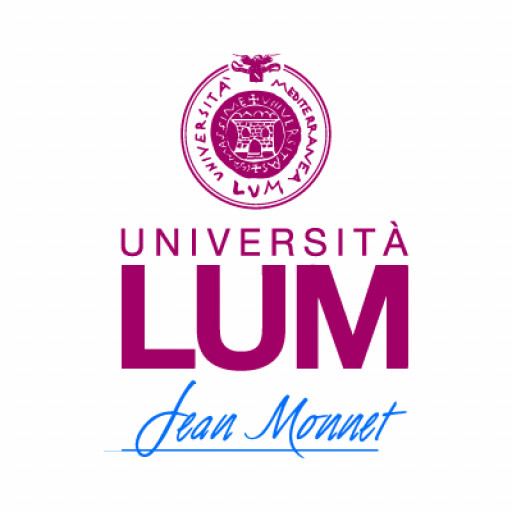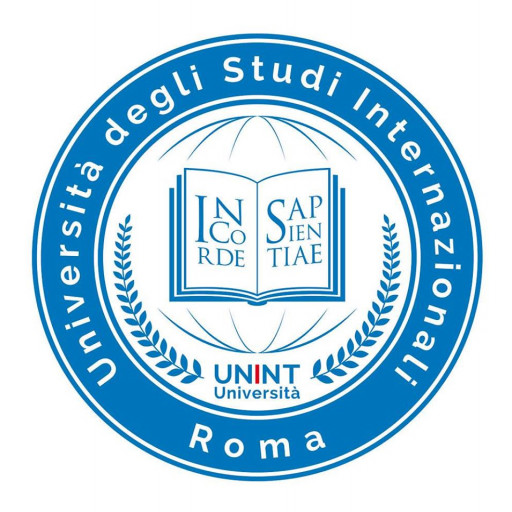Photos of university / #Princeton
Princeton has one of the finest economics departments in the world. Economics is consistently one of the most popular undergraduate concentrations on campus and attracts a diverse group of students with a broad range of interests.
To enter the department, a student must complete, by the end of sophomore year, the prerequisite courses ECO 100, 101, 202 (or equivalent), earning a letter grade of C or better in each and a letter grade of C or better in MAT 175. ORF 245 can be substituted for 202; PSY 251, WWS 200 and SOC 301 are not acceptable. The statistics requirement cannot be satisfied with summer courses taken after the student has begun studies at Princeton, except in unusual circumstances approved by the departmental representative, Professor Henry S. Farber (farber@princeton.edu(link sends e-mail)).
Students who wish to take ECO 312 or upper-level finance certificate courses (such as ECO 462, 465 or 466), or pursue graduate studies in economics or finance should take the two-semester sequence MAT 201 + 202 (or MAT 203 + 204) rather than MAT 175.
A meeting for sophomores interested in joining the department will be announced in the spring. Underclass students are welcome to discuss department requirements with the departmental representative. Students considering study abroad are urged to meet with the departmental representative at the earliest opportunity in their freshman year.
General Requirements. The department requires concentrators to complete, and pass on a graded basis, the following:
Core Courses: Microeconomics (ECO 300 or 310), Macroeconomics (ECO 301 or 311), and Econometrics (ECO 302 or 312), to be completed during or before the junior year.
Elective courses: Five other departmentals (see Other Departmentals for details).
- Junior independent work.
- Senior thesis.
- Senior comprehensive exam.
Furthermore, the student must have a departmental average of at least C.
Note: The calculation of the departmental average is described in Departmental Average. The treatment of failed courses is described in Advancement to Senior Standing.
Core Courses. All concentrators must pass, on a graded basis, core courses in microeconomics (ECO 300 or 310), macroeconomics (ECO 301 or 311), and econometrics (ECO 302 or 312). These courses must be completed during or before the junior year. Each of the three core courses is offered in two versions to accommodate different levels of preparation in mathematics: ECO 300, 301, and 302 require MAT 175; ECO 310 and 311 require MAT 175 or MAT 201; and ECO 312 requires MAT 201 + MAT 202.
Qualified students are encouraged to take the more mathematical versions of our core courses. It is not necessary to take all three core courses in the same version.
Other Departmentals. In addition to the three core courses, concentrators must pass, on a graded basis, five other departmental courses. Departmentals can be any 300-, 400-, or 500-level economics courses, or an approved cognate (see Cognates).
Students planning a senior thesis with empirical emphasis are strongly encouraged to take ECO 313; students planning a theoretical senior thesis are strongly encouraged to take ECO 317 and/or ECO 418.
Cognates. Economics majors are allowed to count a maximum of two courses from other departments as cognates. These courses need to have substantial economics content. A course with an economics cross-listing (indicated by an ECO 3XX, ECO 4XX, or ECO 5XX number in its first or second listing) counts as a regular departmental, not as a cognate. Courses that will be automatically recognized by TigerHub(link is external) as cognates are listed below. No application is necessary for these courses.
- COS 445 Networks, Economics and Computing
- ELE 381 Friends, Money and Bytes
- HIS 474 American Economic Crises, 1873-2009
- ORF 307 Optimization
- ORF 309 Probability and Stochastic Systems
- ORF 311 Optimization under Uncertainty
- ORF 350 Analysis of Big Data
- ORF 405 Regression and Applied Time Series
- ORF 417 Dynamic Programming
- POL 347 Mathematical Models in the Study of Politics
- POL 349 Political Economy
- POL 352 Comparative Political Economy
- POL 385 International Political Economy
- WWS 340/PSY 321 Psychology of Decision Making and Judgment
- WWS 408 Finance and Public Policy
- WWS 466/HIS 467 Financial History
- WWS 472 Economics of the Welfare State
- WWS 524 Political Economy of Central Banking
- WWS 582c Topics in Applied Economics: Growth, International Finance and Crises
If you would like us to consider a course that is not on the previous, routinely approved list, please complete a cognate approval form and submit it, along with a copy of the course syllabus, to Noelina Hall, 001 Fisher Hall. To be approved as a cognate, a course must have substantial content in theoretical or empirical economic analysis. Permission should be obtained before the semester's deadline for the grading option change (usually in week eight or nine of each term).
Independent Work
Junior Independent Work and Senior Thesis. Independent work is designed to afford concentrators the opportunity to identify and explore their research interests in depth. Students are expected to develop a carefully reasoned exposition that critically analyzes a problem using basic principles of economics. Juniors complete a year-long research project, which consists of a research prospectus submitted in December and a final paper submitted in April. The senior thesis is expected to be more extensive, with a topic of greater scope and correspondingly broader analysis and interpretation. Further details, from the assignment of advisers to the final deadlines, are available in the junior independent work and senior thesis sections of the department's website.
Senior Departmental Examination
The senior comprehensive examination is a written exam that covers the department's required courses (intermediate microeconomics, macroeconomics, and econometrics). The senior comprehensive exam grade will appear on the student's transcript.
Study Abroad
Potential economics concentrators who expect to study abroad for one or two semesters must plan well ahead. Because the department only rarely permits core courses to be taken abroad, and because core courses may not be postponed to senior year, potential economics concentrators planning study abroad must complete the appropriate core courses in their sophomore year. It is almost never feasible to spend a semester abroad in the senior year.
Economics courses taken abroad may be preapproved as departmentals by the departmental representative, ordinarily up to one per semester. Plans for junior independent work must also be approved in advance.
Preparation for Graduate Study
Graduate study in economics requires special preparation and advance planning, starting as early as the freshman year. Students contemplating graduate study in economics should see the departmental representative as early as possible. Preparation for graduate school should include the following: the more mathematical versions of the core courses (310, 311, and 312), two years of calculus (up through MAT 202, 204, or 218), an upper-level mathematics course such as MAT 320; Operations Research courses such as ORF 309, 311, or 405; and an advanced econometrics or economic theory course such as ECO 313, 317 or 418. Students may find the Program in Applied and Computational Mathematics or the Program in Engineering and Management Systems an interesting option. It is not necessary to be an economics concentrator to enter a graduate economics program, but the economics courses listed above are highly recommended. Graduate courses in economics (500 level) are open to qualified undergraduates. These courses are very demanding and must be started in the fall term. Taking one of these courses can be useful for students who intend to enter an economics graduate program, because it begins the student's advanced training, gives the student a flavor of graduate school, and provides evidence during the admissions process of the ability to do advanced work in economics.
- Submit
- A Completed Application. You must submit your application online through either the Common Application, Coalition Application or the Universal College Application.
- Princeton's Supplement. In addition to the application provided by the Common Application, Coalition Application or Universal College Application, all applicants must submit the Princeton Supplement. You should submit the Princeton Supplement online through the Common Application, Coalition Application or Universal College Application website.
- Application Fee or Fee Waiver. You may submit a fee waiver one of two ways: 1) Select the fee waiver option on the Common Application, Coalition Application or Universal College Application. Your college or guidance counselor must approve your fee waiver request online or submit your fee waiver form by mail or fax. 2) Select one of the following fee waiver options on the Princeton Supplement: Princeton-specific, ACT, College Board, NACAC or Realize Your College Potential. All low-income students are eligible for the Princeton-specific fee waiver. Students named QuestBridge Finalists should select the QuestBridge fee waiver. If you use the Princeton-specific fee waiver, you do not need to get approval from your college counselor. Learn more about fee waivers on the How to Apply page.
- Request
- Transcript. An official transcript must be sent by a guidance counselor or school official.
- School Report (SR). The SR form is available from the Common Application and Universal College Application websites. Please ask your guidance counselor or other school official to complete and submit the SR form. If you are using the Coalition Application, the SR and counselor recommendation are uploaded as one item.
- Counselor Recommendation. If you are using the Common Application online, please note that the SR and the Counselor Recommendation are separate items. Be sure to 'invite' your guidance counselor or academic adviser to complete both items. If you are using the Coalition Application, please invite your counselor to upload the counselor recommendation and school report.
- Two (2) Teacher Recommendations. Please ask two of your teachers from different academic areas of study to complete and send the teacher recommendation forms, available on the Common Application, Coalition Application and Universal College Application websites. Choose teachers who have taught you in higher-level courses.
- Mid-year School Report. Please ask your guidance counselor or other school official to complete and submit this form when your mid-year grades are available. The form may be found on the Common Application, Coalition Application and Universal Application websites.
- Report
- SAT with Essay or ACT with Writing. Early action applicants are strongly encouraged to complete their SAT with Essay or ACT with Writing test before the Nov. 1 deadline. Regular decision applicants should take the SAT with Essay test by the January test date or take the ACT with Writing by the December date. When registering for the SAT or ACT, use the following codes to ensure your scores are sent to Princeton: SAT: 2672 and ACT: 2588. Learn more about standardized testing for admission.
- SAT Subject Tests. We recommend, but do not require, the submission of two SAT Subject Tests, which often assist us in the evaluation process. We have no preference for the specific SAT Subject Tests applicants might choose to take. However, if you apply for the Bachelor of Science in Engineering degree, we recommend that you take mathematics Level I or II, and either physics or chemistry. If you decide to submit Subject Tests, early action applicants should take them by the November test date, and regular decision applicants should take them by the January test date. Learn more about standardized testing for admission.
- TOEFL, IELTS or PTE Academic scores. If English is not your native language and you are attending a school where English is not the language of instruction, you must take the Test of English as a Foreign Language (TOEFL), the International English Language Testing System Academic (IELTS Academic) or the Pearson Test of English Academic (PTE Academic), in addition to the SAT with Essay or ACT with Writing. You are not required to take the TOEFL, IELTS or PTE Academic if English is your native language or if you have spent at least three years at a secondary school where English is the primary language of instruction. Please have your scores sent directly to Princeton: TOEFL: 2672
Optional Application Components
- Arts Form, if applicable. If you've excelled in architecture, creative writing, dance, music, theater or visual arts, and would like us to consider your talent, consult Princeton's online Optional Arts Form. Early action applicants must submit digital arts materials by Nov. 7; regular decision applicants must submit digital arts materials by Jan. 6. You can only submit your online Optional Arts Form after we have received the Common Application, Coalition Application or Universal College Application. If you are unable to submit online, please use the paper Optional Arts Form. For a list of acceptable file formats and submission types, review our Optional Arts Form page. For more information on the optional arts supplement, please visit our FAQs page.
- Interview. Depending on availability, once you have applied, you may be invited to interview with a member of one of our Princeton Alumni Schools Committees. If so, we encourage you to take advantage of this opportunity. Interviews take place after the Admission Office has received your application. Many Princeton Alumni Schools Committees have enough volunteers to offer every applicant an interview. As the interview is not a required element of the application, you will not be at a disadvantage if an interview is not available in your area. We do not offer on-campus interviews. Please visit our FAQs page for more information.
Want to improve your English level for admission?
Prepare for the program requirements with English Online by the British Council.
- ✔️ Flexible study schedule
- ✔️ Experienced teachers
- ✔️ Certificate upon completion
📘 Recommended for students with an IELTS level of 6.0 or below.
The full need of all admitted international students is met the same as it is for students from the United States. Your family’s ability to pay for your university education is not a factor in our admission decision. Students who qualify for financial aid will receive a grant, rather than a loan that has to be repaid, and a term-time job (8-9 hours per week) to meet their need as determined by the Financial Aid Office.
Our financial aid program is entirely based on need. Princeton does not offer academic or athletic merit scholarships. Financial aid awards cover the difference between Princeton’s costs and the amount your parents are expected to contribute to your education. The parental contribution is based on our evaluation of your financial aid application.











